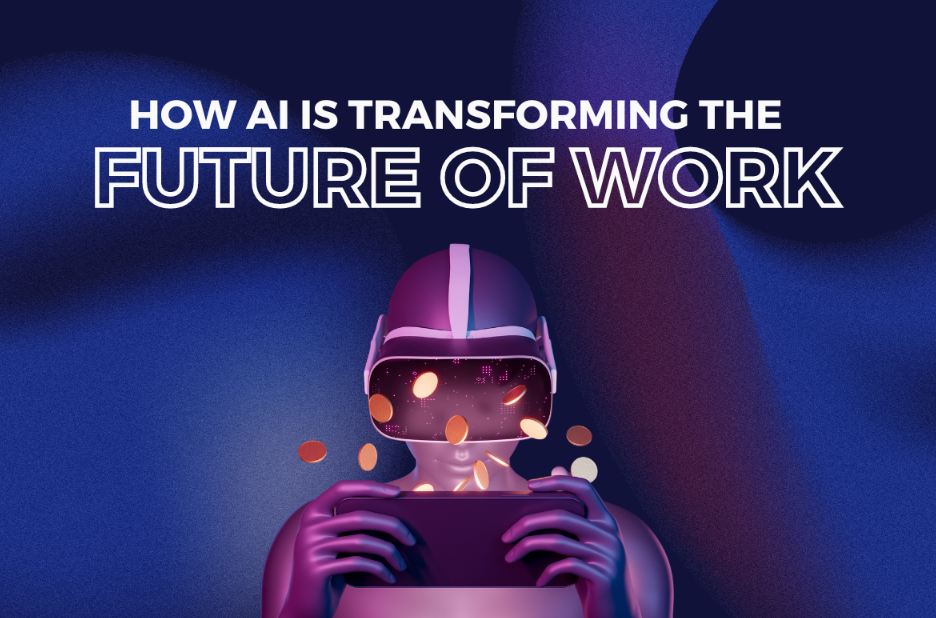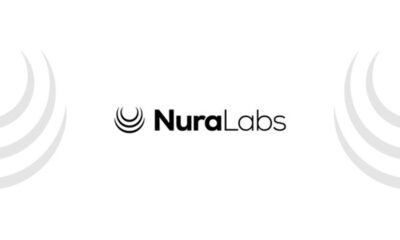Alternative Energy
How AI is transforming the future of work

Introduction:
As artificial intelligence (AI) and machine learning seamlessly integrate into the workforce, the very fabric of employment undergoes a profound transformation. The paper, “The Future of Work: How New Technologies Are Transforming Tasks,” serves as a guiding light on this journey, elucidating the nuanced impact on tasks, skills, and the overarching structure of the job market. At the forefront of this AI revolution is Global Triangles, a leading company committed to crafting bespoke AI solutions that resonate with the evolving needs of companies and the workforce.
The Shifting Task Landscape:
Drawing insights from research by the MIT-IBM Watson AI Lab, the deployment of AI introduces a discernible shift in the nature of tasks within jobs. While not heralding the disappearance of all jobs, there is a clear change in the demand for tasks well-suited for machine learning. Notably, tasks requiring soft skills—intellectual prowess, creativity, and intuition—are gaining prominence, as technology automates routine and predictable tasks. This shift aligns with Global Triangles’ mission to empower companies to adapt and thrive in this dynamic environment, as CEO Garry Lea notes, “Our bespoke solutions are catalysts for innovation, transforming the workforce into one that is resilient and innovative.”
Impact on Job Structure:
Global Triangles’ expertise in developing cutting-edge AI solutions aligns with the profound impact AI has on job structures. The study reveals a noteworthy shift in task distribution across wage categories, with mid-wage jobs witnessing a decline, while both low-wage and high-wage jobs experience growth. This realignment contributes to substantial wage growth for low-wage and high-wage workers, reshaping the traditional income disparities in the workforce. The integration of AI into the workplace becomes a key factor in this transformation.
Technology’s Historical Role:
Contextualizing these transformations within the historical framework of the US economy, the paper recognizes previous periods of rapid growth and technological advancements, such as the introduction of semiconductors. However, recent decades have seen a different trend marked by sluggish growth, limited productivity gains, and constrained career opportunities. AI and machine learning emerge as potential catalysts for revitalizing the labor market, marking a paradigm shift in the role of technology in shaping economic landscapes.
Task Redesign and Future Prospects:
Looking ahead, the study predicts a continuous redesign of occupational tasks propelled by advancements in machine learning. This underscores the imperative for workers to adapt, learn new skills, and focus on career advancement across all wage groups. The emphasis shifts from job displacement to proactive measures for skill acquisition and professional development. Global Triangles’ commitment to this transformative vision aligns seamlessly, offering tailored AI solutions that harmonize with the evolving demands of the AI-influenced workplace.
AI in Education:
Expanding our focus, the impact of AI extends beyond the workplace into education. Educational systems worldwide leverage AI to tailor learning experiences, creating adaptive curricula that adjust based on students’ progress and learning styles. AI-driven intelligent tutoring systems provide real-time feedback, allowing for personalized, student-centric learning journeys. Global Triangles contributes to this educational revolution by developing solutions that ensure equitable access to learning opportunities.
Collaborative Synergy:
Central to this transformative narrative is the collaborative synergy between humans and AI. Garry Lea emphasizes, “AI should enhance our skills and abilities, creating new opportunities for work and education, not replacing or limiting them.” This philosophy underscores Global Triangles’ commitment to a future where technology complements and empowers the workforce and learners alike, fostering unprecedented innovation and progress.
The Broader Impact on Society:
Zooming out from the workplace and education, the impact of AI reverberates across society. Its transformative influence touches aspects beyond the professional realm, shaping how individuals interact, access information, and contribute to community well-being. As AI becomes an integral part of daily life, considerations for ethical use, inclusivity, and accessibility become paramount. Global Triangles, in its pursuit of AI solutions, takes a holistic approach, acknowledging the broader societal implications of intelligent technologies.
Conclusion:
In conclusion, the multifaceted impact of AI on the future of work, education, and society is illuminated through the lens of the paper. It paints a vivid picture of a workforce, educational landscape, and societal fabric in transition, where tasks, skills, and income inequalities are being redefined. As AI continues to advance, the workforce and learners are tasked with navigating this transformative wave, embracing change, and harnessing the potential for renewed growth and prosperity. With companies like Global Triangles leading the charge, providing tailored AI solutions for the evolving needs of businesses, educational institutions, and society at large, the future promises to be a dynamic, inclusive, and technologically enriched landscape. The journey unfolds, and the collaborative synergy between humans and AI shapes a future where technology not only complements but also empowers, setting the stage for unprecedented innovation, progress, and societal well-being.
-

 Press Release3 days ago
Press Release3 days agoNura Labs Files Revolutionary Patent: AI-Powered Wallet Solves the $180 Billion Crypto Staking Complexity Crisis
-

 Press Release1 day ago
Press Release1 day agoGlobal Compound Feeds and Additives Industry Report: Market Expansion and Competitive Insights to 2035
-

 Technology1 day ago
Technology1 day agoWhat to Know Before Switching Cell Phone Network Services in 2025















